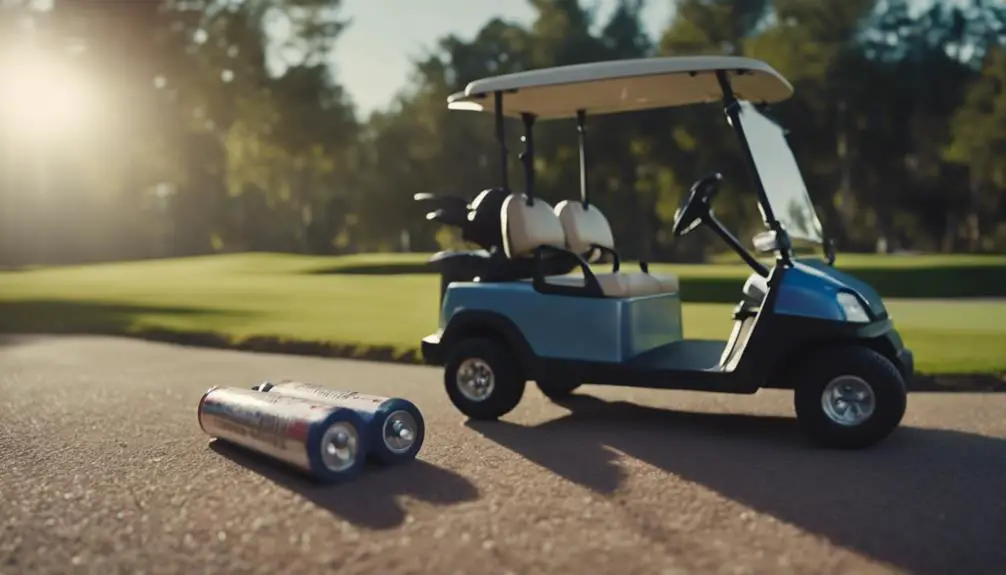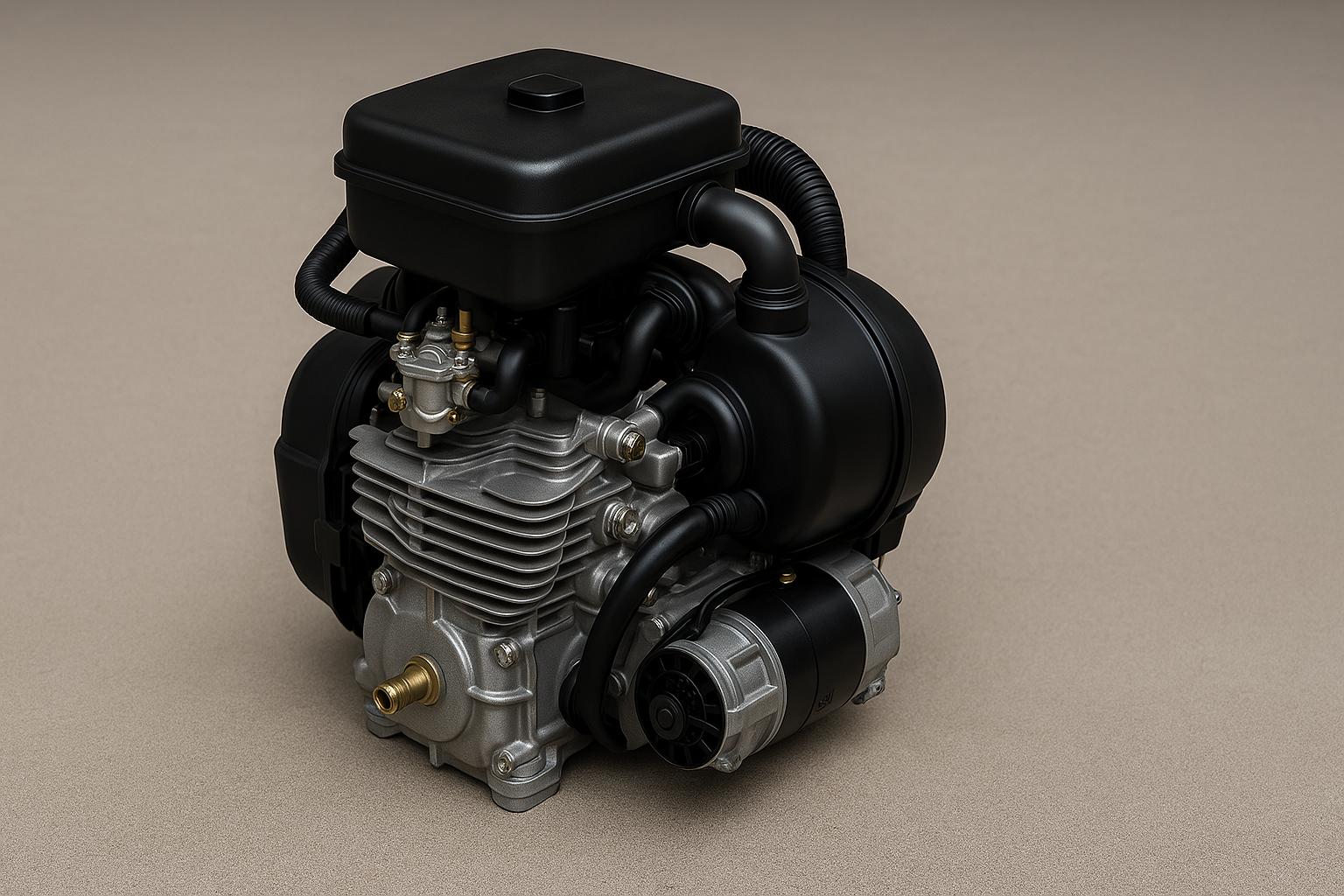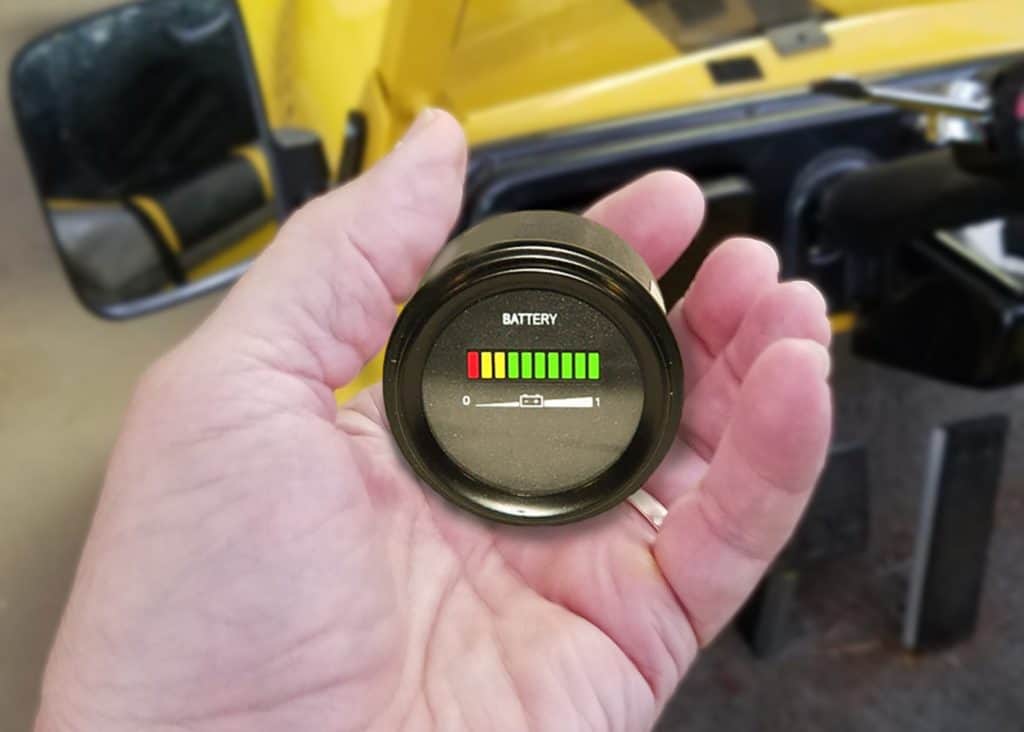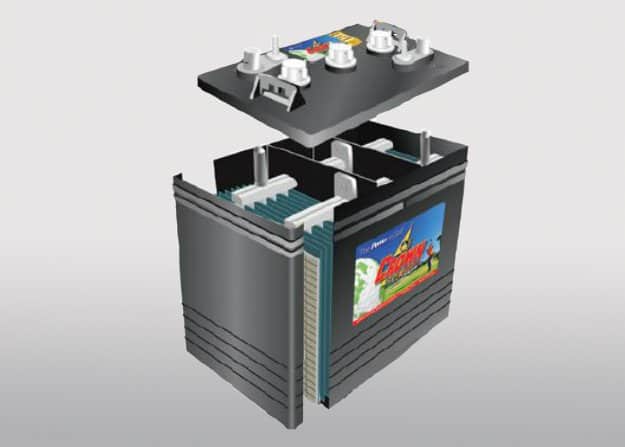The best battery for a golf cart depends on the specific needs of the user, but the Trojan T-605 6V is a well-regarded option among lead-acid batteries due to its reliability and affordability. Contrastingly, Lithium LiFePO4 batteries present an alternative and are known for their light weight, consistent power delivery, and longevity, even though they carry a higher upfront cost. Further exploration into the specifics of these battery types will enable you to make an informed decision based on your budget, performance requirements, and maintenance preferences.
Key Takeaways
- Lithium LiFePO4 batteries offer high power, and longevity, and are suitable for rough terrain.
- AGM batteries are an advanced, reliable variant of lead-acid batteries for golf carts.
- Traditional lead-acid batteries, like the Trojan T-605 6V, are affordable and offer consistent power.
- Despite initial higher costs, lithium batteries can provide long-term savings due to their extended lifespan and superior performance.
- Regular maintenance and adherence to manufacturer guidelines can extend the lifespan and performance of both lithium and lead-acid batteries.
Understanding Golf Cart Battery Basics
Diving into the fundamentals of golf cart batteries, it’s important to note that they are typically deep cycle lead-acid batteries, specifically designed to deliver consistent power. These batteries, like the Trojan T-605 6V, are known for their robustness and reliability. They are designed to provide a steady amount of current over a long duration.
However, battery technology has evolved and lead-acid batteries are not the only option for golf carts. AGM batteries, an advanced version of the lead-acid batteries, are gaining popularity. AGM stands for Absorbed Glass Mat. These batteries contain a special glass mat separator that wicks the electrolyte solution between the battery plates. This technology allows the battery to provide the same power as a lead-acid battery but without the need for water refilling, thereby reducing maintenance.
A newer contender in golf cart batteries is Lithium LiFePO4 batteries. These batteries offer numerous advantages over their predecessors. For instance, they last 4-6 times longer than lead-acid batteries and offer more power, lighter weight, and built-in battery monitoring systems for protection. They represent a promising future for golf cart power solutions.
Examining Lead-Acid Batteries
Exploring the realm of lead-acid batteries, these traditional powerhouses have supported the golf cart industry for over a century, providing reliable power and cost-effectiveness. A notable example is the Trojan T-605 6V Flooded Lead Acid battery, a product known for resilience and providing consistent power.
Manufactured by Trojan, a brand synonymous with durability, these batteries are well-regarded for delivering steady performance, regardless of temperature variations. Whether operating in high heat or a chilly environment, lead-acid batteries prove reliable, underscoring their suitability for golf carts used across diverse climates.
However, it’s critical to remember that these batteries do require minor maintenance. Regular addition of distilled water is essential to maintain peak functionality and prolong the lifespan of these batteries. Despite this, the overall maintenance effort is relatively minor, ensuring the lead-acid battery remains a practical choice for most golf cart owners.
The balance between affordability, consistent power, and manageable maintenance makes lead-acid batteries a traditional yet effective choice in the golf cart industry. While newer battery technologies emerge, lead-acid batteries, particularly those from trusted brands like Trojan, retain a strong presence, proof of their proven track record in the field.
Advantages of Lithium Batteries
While lead-acid batteries have long been the staple in golf cart power, the emergence of lithium batteries introduces new advantageous features to take into account. Lithium batteries offer a level of power and longevity unmatched by their lead-acid counterparts, making them an attractive option for those seeking an upgrade in performance and durability.
Lithium batteries have several notable advantages:
- They provide more power, enabling higher speeds. This is a substantial benefit for those who desire a potent, responsive drive on the course.
- They are equipped with a built-in battery monitoring system that protects against overcharging, ensuring safety and enhancing lifespan.
- Despite being noticeably lighter, they can last over 10 years and maintain maximum capacity over time, providing an impressive longevity.
Moreover, lithium batteries excel in providing consistent power delivery, even at lower charge levels. This consistency is ideal for golf carts which often encounter rough terrain, ensuring a steady performance in diverse conditions.
Comparing Battery Lifespan and Performance
When it comes to comparing the lifespan and performance of golf cart batteries, lithium batteries clearly outshine their lead-acid counterparts. Remarkably, lithium batteries can last up to five times longer than lead-acid batteries, making them a superior choice in relation to longevity. This extended lifespan greatly reduces the frequency and associated inconvenience of battery replacements, contributing to a more seamless golfing experience.
Regarding performance, lithium batteries are unsurpassed in their consistent power delivery throughout their lifespan. Unlike lead-acid batteries, lithium batteries maintain their full power output even at lower charge levels, which translates into sustained performance on the course. They exhibit no voltage sag, a common challenge with lead-acid batteries that leads to diminished performance over time.
Furthermore, lithium batteries are particularly well-suited to rough terrain due to their consistent power, light weight, and robust performance. The enhanced power delivery and lighter weight of lithium batteries contribute to superior hill-climbing ability and less wear and tear on the golf cart, extending its overall lifespan. Hence, when considering both lifespan and performance, lithium batteries prove to be the best choice for golf carts.
Cost Analysis: Lead-Acid Vs Lithium
In evaluating the financial implications of choosing between lead-acid and lithium batteries for golf carts, one must consider not only the initial cost but also the potential long-term savings. Lithium batteries may represent a significant initial investment compared to lead-acid batteries, but it is essential to factor in their superior lifespan and performance benefits.
In terms of cost-effectiveness, the following points should be considered:
- Lithium batteries can last up to five times longer than lead-acid batteries, mitigating their higher upfront cost.
- Despite the initial price difference, switching to lithium batteries can provide long-term savings due to their longevity.
- To break even with the installation costs of lead-acid batteries, lithium batteries need to last around 15 years.
Making the Right Battery Choice
Browsing through the diverse range of available golf cart batteries, one must consider lithium batteries for their superior performance, longevity, and built-in safety features. These batteries offer a lightweight solution and a lifespan that often exceeds a decade. Importantly, they maintain maximum capacity over time, guaranteeing consistent power delivery vital for ideal golf cart operation.
Comparatively, traditional lead-acid batteries, including deep cycle batteries, fall short of these advantages. They’re heavier and their capacity diminishes with time, impacting the cart’s performance. Additionally, lithium batteries boast an impressive 5,000 partial cycles, far surpassing lead-acid batteries’ ability to last.
Another distinguishing feature of lithium batteries is their innate immunity to voltage sag. Unlike lead-based batteries, they maintain full power output even at lower charge levels. This feature ensures the best performance of your golf cart, especially on challenging terrains.
Lithium batteries also possess a built-in battery monitoring system, protecting them from overcharging, a common issue with lead-acid batteries. This not only enhances the battery’s longevity but also mitigates safety concerns.
Maintenance Tips for Golf Cart Batteries
While lithium batteries clearly outperform lead-acid batteries in longevity and performance, it’s equally important to discuss the maintenance of these power sources to guarantee their peak operation in golf carts.
Lithium batteries are a superior choice, not only for their extended lifespan but also for their minimal maintenance requirements. Unlike lead-acid batteries, lithium batteries eliminate the need for water refilling, making upkeep hassle-free. However, with either type of battery, it is essential to keep the terminals clean and free of corrosion to maintain battery performance.
Here are some key maintenance tips to remember:
- Regularly check and refill water levels in lead-acid batteries.
- Ensure the terminals are clean and free of corrosion to prevent power loss.
- Follow manufacturer guidelines strictly for charging and storage.
Adhering to these tips will help prolong the life of your golf cart batteries. It’s also vital to remember that maintenance and charging protocols can differ between lithium and lead-acid batteries, so always refer to manufacturer guidelines. With the correct maintenance, your golf cart battery, be it lithium or lead-acid, will deliver peak performance for a longer period of time.
Frequently Asked Questions
What Type of Battery Is Best for a Golf Cart?
Lithium batteries excel in longevity, require no maintenance, withstand varying climates, and though initially costly, prove economical over time. Hence, they are the best choice for a golf cart battery.
Which Is Better Lithium or Gel Batteries for Golf Carts?
Lithium batteries for golf carts are superior due to their higher charging efficiency, extended lifespan, lower maintenance cost, and reduced environmental impact compared to gel batteries. They offer consistent power and require less upkeep.
Should I Buy a Golf Cart With Lithium Batteries?
Purchasing a golf cart with lithium batteries is advisable due to their extended lifespan, efficient charging capabilities, minimal maintenance requirements, and lesser environmental impact compared to other battery types.
Is a Higher Ah Battery Better in a Golf Cart?
A higher Ah battery in a golf cart offers superior battery longevity, lower discharge rates, and less maintenance requirements. Despite the higher initial cost, its long-term cost-effectiveness makes it a preferable choice for golf cart users.





